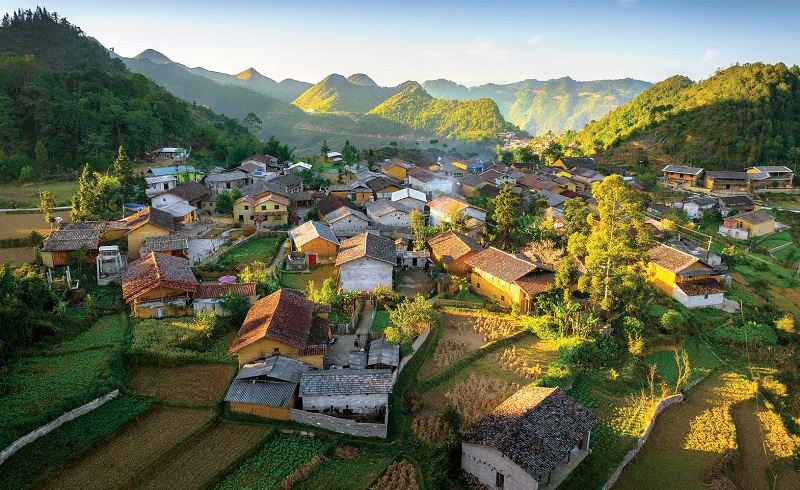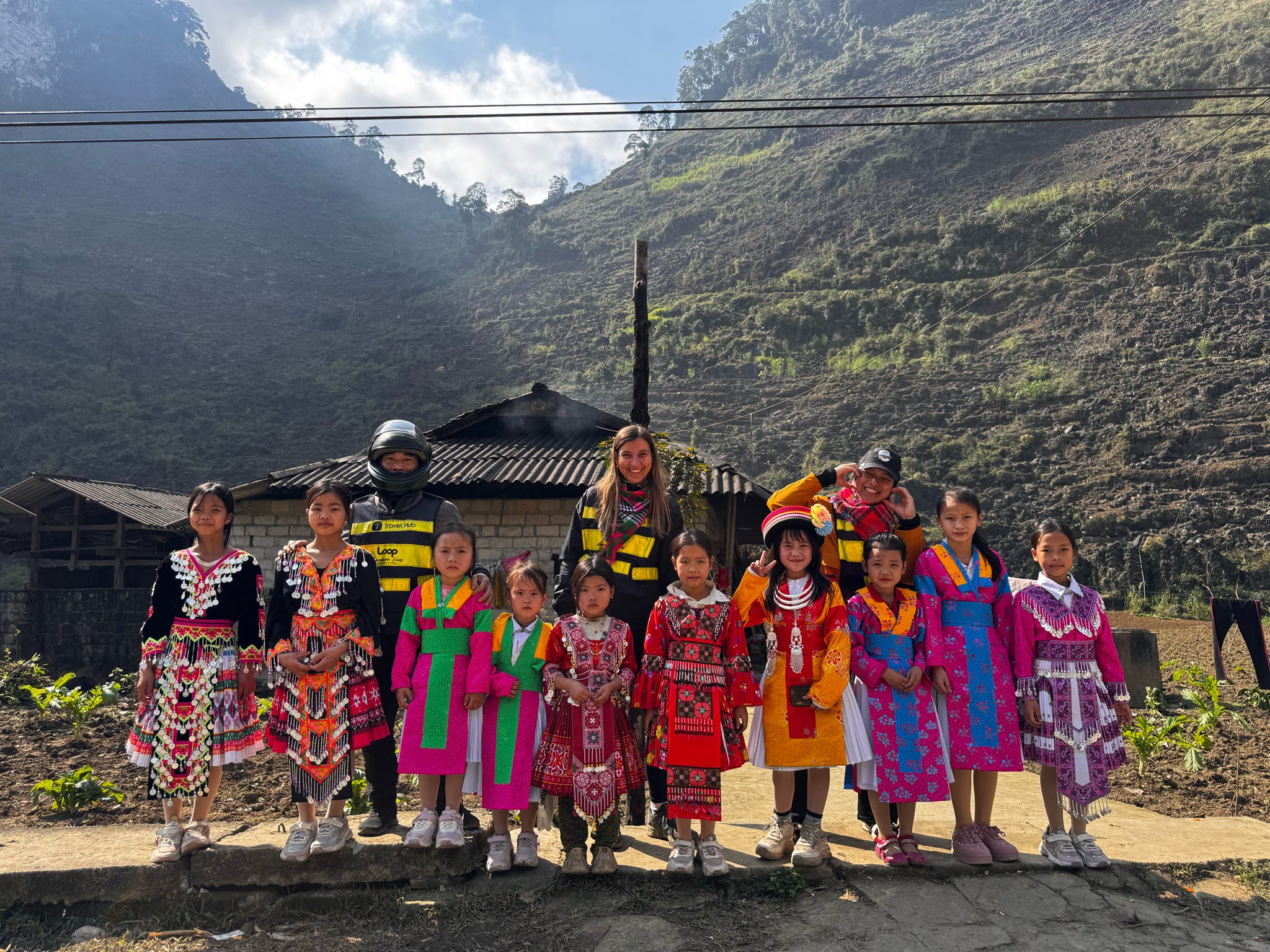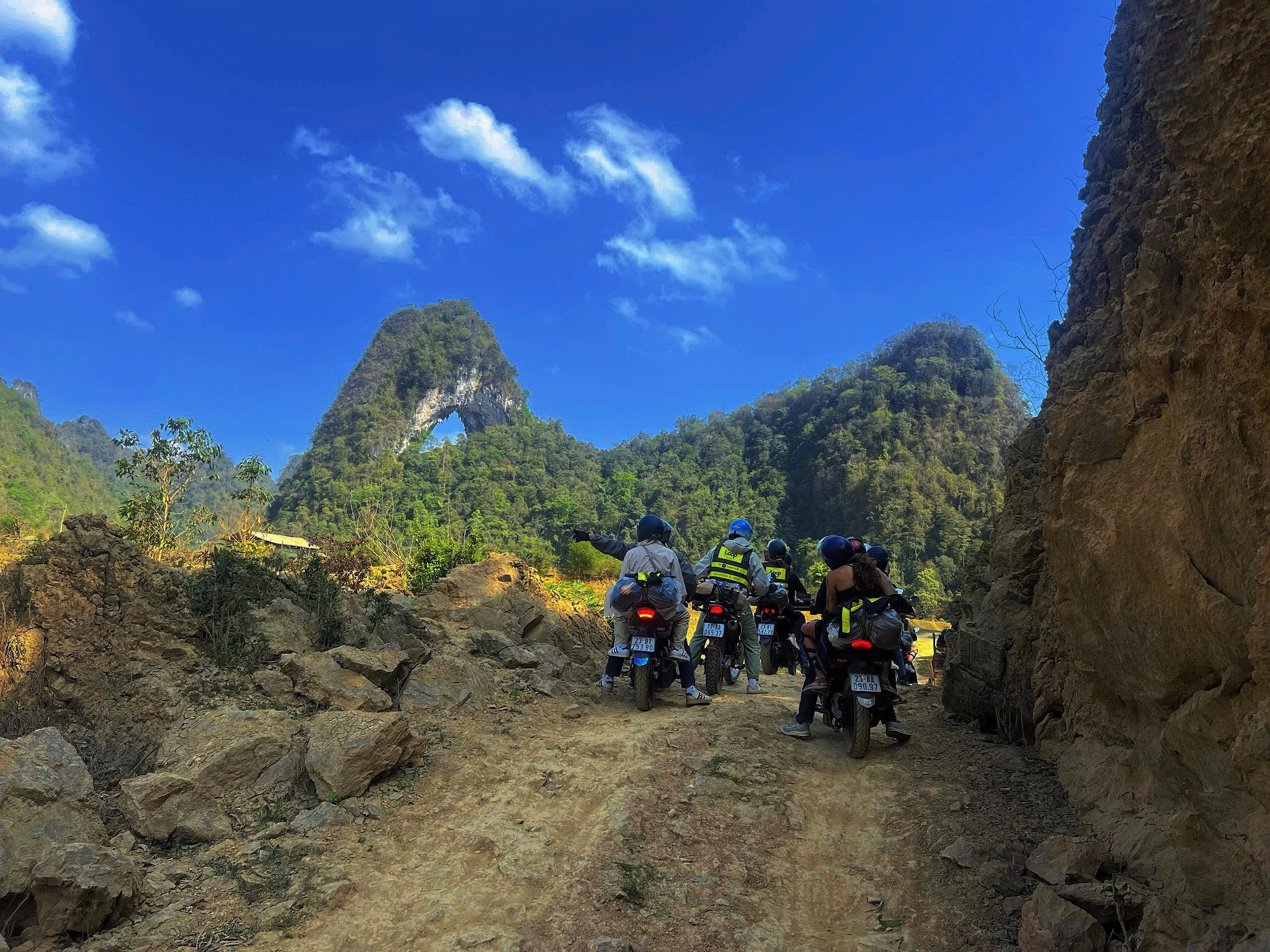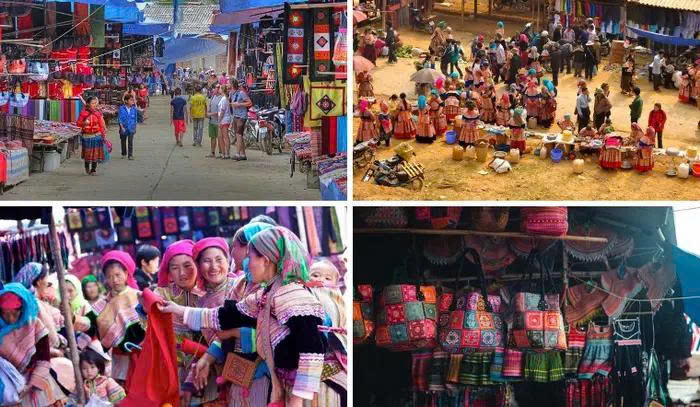Which season is best in Ha Giang? If you’re planning the legendary Ha Giang Loop, the “best” season depends on what you want to see: crystal-clear horizons and buckwheat flowers in October – November, soft peach and plum blossoms in March, mirror-like water-pouring terraces in May, or golden harvest patterns in September. Summer (June – August) trades crowds for lush green and brief afternoon showers, while winter (December – February) brings quiet roads, moody light, and crisp air. In this guide, you’ll compare weather, scenery, and crowds by month - plus get practical tips on packing, safety, and sample routes - so you can choose the season that matches your style and make the most of every daylight hour in Ha Giang.

Recommended Tours for You:
Ha Giang seasons at a glance
| Season | Months | What it looks/feels like | Best for | Trade-offs |
|---|---|---|---|---|
| Spring | Mar–Apr | Cool–mild, bright; morning mist lifts | Blossoms, first-timers, stable roads | Some fog delays at dawn |
| Early Monsoon | May | Warm, short showers; terraces flooded | Water-pouring terraces (mirror photos) | Humidity; plan around afternoon rain |
| Monsoon Peak | Jun–Aug | Warm–hot; dramatic clouds & brief storms | Lush green, full waterfalls, fewer crowds | Slick corners after rain; variable visibility |
| Harvest | Sep | Warm, clearer windows; post-monsoon views | Golden rice terraces (Hoang Su Phi) | Popular—book rooms in advance |
| Crisp Autumn | Oct–Nov | Pleasant temps; long views; buckwheat | All-round best for scenery & comfort | Highest demand (price/availability) |
| Winter | Dec–Feb | Cold mornings; moody light | Quiet roads, cozy homestays, photos | Short daylight; dress warmly |
Season-by-season deep dive
Spring (March–April): blossom season & beginner-friendly
-
Why go: Stone-walled villages framed by peach and plum blossoms; cool, mostly dry riding; longer daylight than winter.
-
Who it suits: First-timers, photographers who love soft light and village life.
-
Notes: Start a bit later on foggy mornings; visibility often opens by late morning.

May: water-pouring season on the terraces
-
Why go: Rice paddies are flooded like mirrors—sunrise/sunset reflections are incredible.
-
Who it suits: Photographers, travelers who don’t mind a light rain jacket.
-
Notes: Showers are usually short; plan early starts and finish rides before dusk.
June–August: green season with dramatic skies
-
Why go: Emerald valleys, lively waterfalls (Du Gia), and fewer peak-season crowds. Clouds after rain make canyon views pop.
-
Who it suits: Value seekers, travelers who like weather drama and don’t mind brief showers.
-
Notes: Roads can be slippery right after rain—ride conservatively and schedule a long lunch while storms pass.

September: harvest gold
-
Why go: Hoang Su Phi terraces turn gold; air clears after the heaviest monsoon weeks.
-
Who it suits: Landscape chasers who want pattern-rich terrace photos plus good riding weather.
-
Notes: It’s a favorite—lock in homestays and bikes early.
October–November: the crowd-pleasing sweet spot
-
Why go: Widely considered the best overall—comfortable temps, long views, and buckwheat flowers.
-
Who it suits: Everyone, especially first-timers wanting the “classic” Loop feel.
-
Notes: Most popular period; book early for Dong Van/Meo Vac weekends.

December–February: winter light & quiet roads
-
Why go: Crowd-light viewpoints, crisp light on Ma Pi Leng, and cozy homestay evenings.
-
Who it suits: Photographers, travelers who prefer calm to crowds.
-
Notes: Cold mornings and shorter days; plan daylight-only travel and bring a windproof/water-resistant shell.

How to choose your “best” season (by travel goal)
-
Crystal-clear horizons & comfy temps: October–November, also many days in April.
-
Village blossoms: March.
-
Mirror terraces (flooded fields): May.
-
Golden terraces (harvest): September.
-
Quiet & moody: December–February.
-
Budget/value & easier availability: June–August (green season).

Sample 3-day itineraries tailored to seasons
A) Spring/Autumn (clear windows)
Day 1: Ha Giang → Quan Ba Heaven’s Gate → Yen Minh → Sung La → Vuong Palace → Dong Van.
Day 2: Lung Cu (Lo Lo Chai) → Ma Pi Leng Pass side paths → optional Nho Que River boat → Meo Vac.
Day 3: Meo Vac → Du Gia (fields/waterfall) → Ha Giang → sleeper bus to Hanoi.
B) May (water-pouring) / September (harvest)
Swap Day 2 or Day 3 for Hoang Su Phi (Ban Phung, Nam Ty, Ban Luoc) to catch terrace reflections (May) or golden patterns (Sep).
C) Summer (Jun–Aug)
Keep mornings scenic and active; schedule a long midday break, then short afternoon moves if skies allow. Always aim to finish before dusk.
D) Winter (Dec–Feb)
Start slightly later to avoid dense fog; prioritize viewpoints after mid-morning when the light opens.

Packing list by season (keep it light, layer smart)
-
Spring/Autumn: Layerable top, quick-dry pants, light wind shell, compact rain jacket; sunglasses & sunscreen (UVA counts year-round).
-
May–Aug: Light rain jacket, pack cover/zip-locks, breathable shirts, quick-dry socks, electrolytes, hat; grippy shoes.
-
Winter: Thermals, fleece/light down, windproof/water-resistant shell, insulated gloves, beanie/neck gaiter, thick socks.
-
Always: Refillable bottle, small cash, power bank, microfiber cloth, and if riding—helmet, gloves with grip, and long pants.
Safety & logistics (applies year-round)
-
Daylight only. Hairpins + fog/rain + livestock at dusk are avoidable risks.
-
Cornering: look through the turn; favor engine braking on descents; avoid hard front-braking on damp concrete.
-
Daily bike check: tires, brakes, lights, horn, chain lube each morning.
-
Weather buffer: keep 60–90 minutes spare for fog (winter) or showers (green season).
-
Travel styles:
-
Easy Rider (pillion): safest, story-rich for beginners.
-
Self-ride (guided): for confident riders with license + IDP.
-
Car/van with driver: warm, dry, ideal for families and photographers.
-

FAQs – Which season is best in Ha Giang?
Is October really the best month?
For most travelers, yes - pleasant temps, clearer views, and buckwheat blossoms. It’s also busy, so book ahead.
Can I still enjoy the Loop in summer?
Absolutely. Expect short afternoon showers; start early, take a long lunch, and ride only in daylight.
Is winter too cold?
Cold but manageable with thermals and a windproof shell. Roads are calmer and the light is superb.
When are the rice terraces at their peak?
May for water-pouring reflections; September for harvest gold (especially Hoang Su Phi).
What if I’m a total beginner?
Pick March–April or October–November, and consider Easy Rider or car/van for comfort and safety.

Conclusion
So, which season is best in Ha Giang? The “best” depends on your priorities: October - November for the classic, crowd-pleasing mix of views and comfort; March for blossoms; May for mirror terraces; September for harvest gold; winter for quiet roads and moody light; summer for lush greens and better value. Whatever you choose, travel only in daylight, keep a small weather buffer, and pick the travel style that fits your confidence. Do that, and Ha Giang will deliver exactly what you came for - knife-edge horizons on Ma Pi Leng, stone-walled alleys in Dong Van, and a camera roll full of the season you love most.
Plan your adventure today! For more details and personalized support, contact Thelooptours Hotline: +84329196074.








